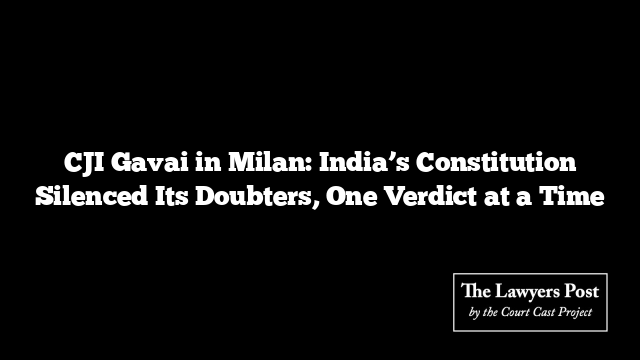The Bar Council of India (BCI) has thrown down the gauntlet to the Society of Indian Law Firms (SILF), accusing it of gatekeeping the legal profession to serve a privileged few while stifling opportunities for the rest. In a pointed rebuke issued Wednesday, the BCI slammed SILF’s opposition to foreign law firms entering India, branding the organization a bastion of monopolistic interest cloaked in concern.
SILF’s public disapproval, BCI claims, is less about policy and more about protectionism. “A self-serving elite of large, legacy law firms have long cornered foreign legal work in India,” BCI stated, alleging SILF functions more like a club for the country’s most powerful firms than a representative of the broader legal community.
According to BCI, over 90% of smaller and upcoming firms are excluded from SILF’s vision and voice, with the body acting as a “shield for incumbents” while undermining newer legal practices and younger professionals who struggle for visibility in an industry dominated by giants.
The friction escalated after SILF President Lalit Bhasin criticized BCI’s push to open Indian legal services to foreign players, calling the move hasty while the matter remains sub judice in the Delhi High Court. Bhasin referenced a prior Supreme Court verdict restricting foreign law firm practice in India — though he added he wasn’t entirely against their eventual entry.
Behind the scenes, both bodies have formed separate committees to review the controversial regulatory changes notified in May. SILF’s panel is led by Shardul Shroff of Shardul Amarchand Mangaldas, while the BCI’s counterpart is headed by Cyril Shroff of Cyril Amarchand Mangaldas.
But what riles BCI most is what it describes as a “parallel legal services economy,” wherein select Indian law firms with longstanding foreign affiliations effectively act as conduits for international legal work, without meaningful reciprocity or accountability.
By resisting change, BCI argues, SILF has stunted Indian law firms’ potential to operate globally, while simultaneously consolidating control at home. “This opposition has systematically denied fair opportunities to the vast majority of Indian legal practitioners,” the BCI charged in its statement.
In a counteroffensive to elite resistance, the BCI is organizing a national legal summit in Mumbai this September. The aim: gather voices from every corner of India’s legal ecosystem and broaden the consultation net.
The message from the BCI is unambiguous — this is not just about letting foreign firms in; it’s about breaking a domestic monopoly. In its words, the mission is to “democratise the legal sector,” all while maintaining national legal sovereignty. The gates, it seems, are swinging open — and not everyone is pleased.





